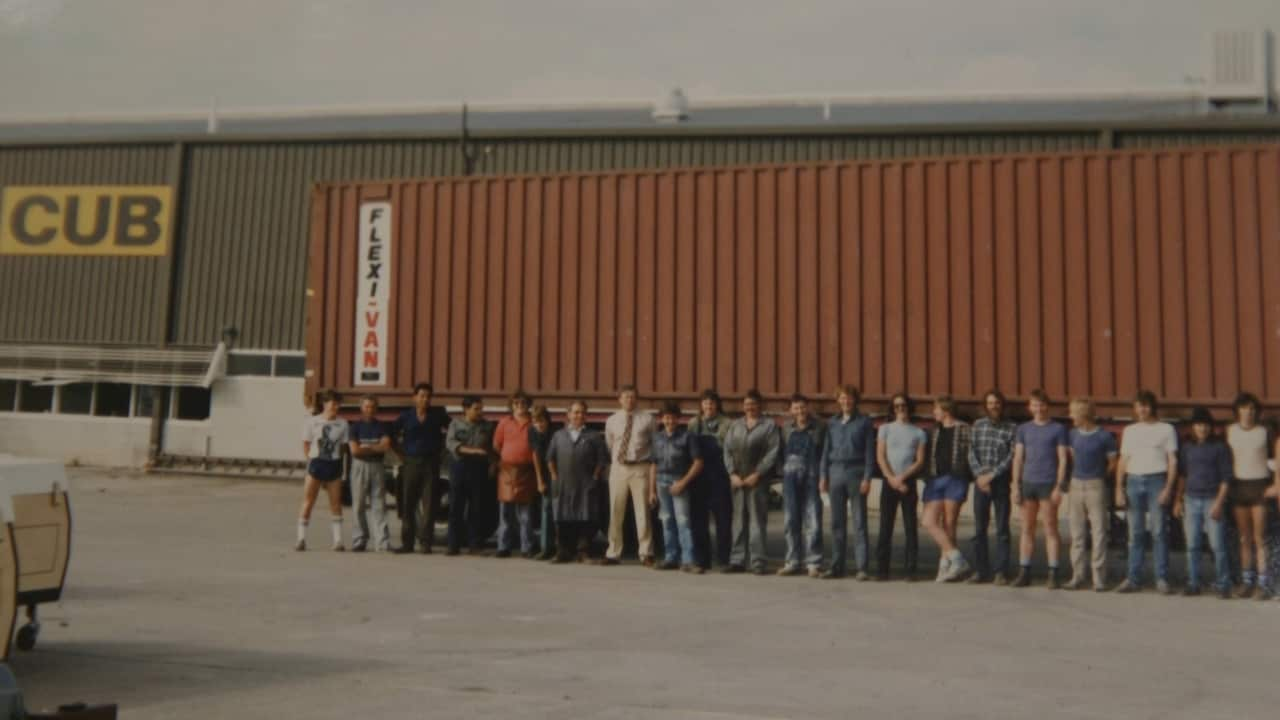Camping has long been an Australian tradition.
For the year ending June 2017, Australians undertook a total of 11.6 million overnight caravan and camping trips.
“We drove across Australia from Sydney to Perth to see the America’s cup and camped in some fantastic destinations across the Nullarbor Plain,” said Fiona Fagan.
Fiona and her siblings Melissa and Shane recently took over their family camper trailer business, Cub Campers.
“I remember sweeping the floors on school holidays as a kid and it’s been part of my life the whole time,” recalled Shane who is now the managing director of Cub Campers.
Five decades and three generations, Cub remains Australia’s longest running camper trailer brand.

Image no longer available
The Fagan siblings were handed the Cub reins after their father Roger retired.
“I’m proud to keep jobs in Australia and the fact we can still manufacture here, despite intense competition,” said Roger Fagan.
“I’m proud to keep jobs in Australia and the fact we can still manufacture here, despite intense competition.”
Cub Campers began in 1968, when Roger’s father, JK Fagan brought a small box trailer business.
Roger then came on board and created the first ever soft floor camper trailer.
Cub went on to become the lion king of camper trailers, with trailblazing innovations that revolutionised the market, such as the simple wind-up mechanism called ‘Ezy-Wind’.
But in the late 1980s, Cub’s survival was tested with Australia on the brink of a recession.
“You worry, you work harder, you cut back on staff unfortunately and there were times I went back on the tools,” said Roger.

Many caravan businesses sunk but Cub stayed afloat, by latching onto the Crocodile Dundee phenomenon.
The Australian blockbuster, starring Paul Hogan remains the most commercially successful Australian film ever made.
“Dad is a great survivor and during the 1980s when a lot of business did go bust, dad saw the opportunity to really draw the link between Crocodile Dundee and cub campers, and that’s when he decided to export to America,” said Fiona.
"During the 1980s when a lot of business did go bust, dad saw the opportunity to really draw the link between Crocodile Dundee and cub campers."
In 1986, Roger made the bold decision to ship a container load of trailers to a large caravan show in Los Angeles.
“It was Dodger stadium and that was a tremendous challenge but we sold three containers and sold quite a few after that,” said Roger.
In 2018, the company has a multi-million dollar annual turnover and employs more than 60 people.
Local production in the Australian RV manufacturing industry has been topping 20,000 for the past six years.
But there has recently been a slight drop in local RV production according to research by the Australian RV manufacturing industry.
Cub remains 100 percent Australian owned and manufactured, using Australian steel and canvas.
But cheaper imports and high manufacturing costs are proving a huge challenge.
“We feel really strongly about supporting Australian workers, and Australian jobs as much as we can, and I think it’s a huge point of difference for our company,” said Melissa Fagan.
"We feel really strongly about supporting Australian workers, and Australian jobs as much as we can."
The caravan and camping trade industry make up more than 21,000 full-time jobs across 4,300 trade businesses in Australia.
Shane spearheaded Cub’s technological evolution and introduced computerized designs and cutting machines.
But the siblings admit there are some old-fashioned challenges modern tech can’t address, such as family differences.
“The great thing about family is it doesn’t matter how many times you try to kill each other, you’re family and you always bounce back and generally by the next day it’s forgotten,” Shane laughed.
"The great thing about family is it doesn’t matter how many times you try to kill each other, you’re family and you always bounce back."
The trio hired Cub’s first CEO, Simon McMillan, to guide the business towards a more professional path of management.
“You do need to sometimes balance emotions with the reality of business and competition,” said Simon.
“I think my main task is to distill the passion and try to make good business decisions.”
Innovation and tradition remain key parts of this family business, along with adapting to changing demands and staying competitive with overseas manufacturers.
Cub hopes to keep going strong for another 50 years and make childhood memories for many future generations.
Sharing business secrets of inspiring entrepreneurs & tips on starting up in Australia's diverse small business sector. Read more about Small Business Secrets
Have a story or comment? Contact Us


